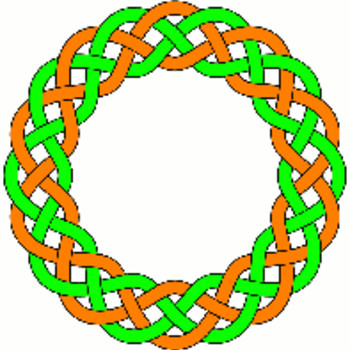Find the angle between the tangents to the circle x² + y² - y -3 =0 at the point where x=1 and find their point of intersection?
1 Answer
Angle between tangents (3 d.p.) is
The tangents intersect at
Explanation:
Noting values of
implies
This implies (quadratic formula)
(or, roots may be found by factorising as
This implies that tangents through
touch the circle at
Noting ("completing the square")
so that the equation of the circle may be written
Rearranging,
which implies the circle has centre
The radius that forms the normal to one of the tangents passes from
Noting that a line passing through points
The line passing through these points has equation
rearranging
Noting that the slope of a normal to a line is the negative reciprocal of the slope of the line, the tangent associated with this radius has slope
The other radius passes from
The line passing through these points has equation
rearranging
Noting that the slope of a normal to a line is the negative reciprocal of the slope of the line, the tangent associated with this radius has slope
Noting that, given a slope
The equation of the first tangent to the circle has equation
that is
The equation of the second tangent to the circle has equation
that is
Noting that the angle between lines with slopes
The angle between the tangents is the arctangent of
that is, the required angle (as an absolute value) is
The tangents intersect when values of
Equal values of
Rearranging
that is
implies
This implies (substituting this value of x into the equation for the line corresponding to one of the tangents)
That is,
Thus, the lines intersect at
I made several arithmetic errors in early versions of this answer. I think I have spotted and corrected them all but remember to check workings.
One reason why I thought that there were errors is that the workings show reflective symmetry in the slopes of the respective tangents in some line parallel with the x-axis
This suggested that the point of intersection of the tangents should lie on the horizontal line through the centre of the circle (that is, through
The current answer satisfies this requirement. It also suggests an alternative method for calculating the angle between the tangents; it will be twice the angle between one of the tangents and the horizontal. The angle between one of the tangents and the horizontal is the arctan of its slope. Choosing the tangent with positive slope for convenience, this would be

